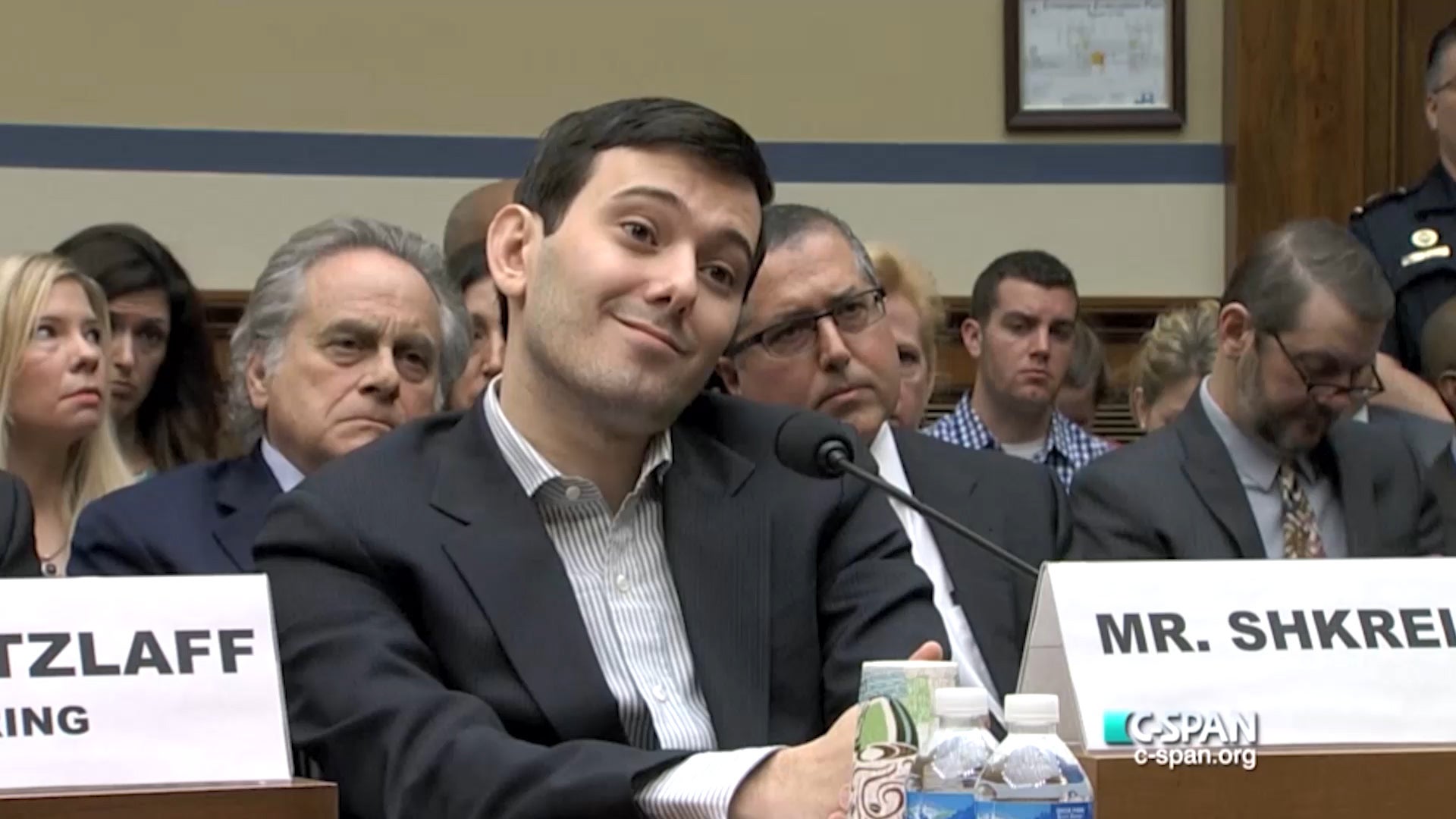Martin Shkreli is no longer the one to blame for the $750-a-pill AIDS medication
On Feb. 4, former Turing Pharmaceuticals CEO Martin Shkreli was interrogated by members of Congress over his decision last September to jack up the price for Daraprim, an antiparasitic commonly used to treat HIV patients, from $13.50 to $750 a pill.


On Feb. 4, former Turing Pharmaceuticals CEO Martin Shkreli was interrogated by members of Congress over his decision last September to jack up the price for Daraprim, an antiparasitic commonly used to treat HIV patients, from $13.50 to $750 a pill.
Shkreli’s testimony—or lack of thereof—before the US Congressional Committee on Oversight and Government Reform made the rounds, mainly for his disagreeable attitude: After grinningly invoking the Fifth Amendment and refusing to answer the panel’s questions, he took to Twitter to insult his interrogators.
Somewhat lost in the theatrics and the furor that followed was this: Turing Pharmaceuticals, from which Shkreli stepped down in December after his arrest on securities fraud charges, has yet to cave to the public pressure to lower its price for Daraprim.
Nancy Retzlaff, the chief commercial officer of Turing Pharmaceutical, was also called to testify before the oversight committee. In her written testimony (pdf), she went over the reasons why the company has decided to keep the price that Skreli had set, noting that the “actual net price” ranges from $0.01 to $750 per pill, with fewer than 25% of pills sold at the highest price. (A Turing spokesperson tells Quartz that the company, which was formed a year ago and only acquired the US marketing rights to Daraprim in August, “incurs a loss on every bottle sold to Medicaid” and similar programs eligible for reduced pricing.)
Retzlaff, responding to a question from committee chair Jason Chaffetz, a Utah Republican, said that Daraprim—which is used by only about 3,000 patients—brought $98 million in revenue to Turing last year. But after distribution costs, overhead, salaries, reinvestment in research and development, and other expenses, the company generated a first-year loss.
After discussing several of the company’s more outlandish expenditures, Chaffetz quickly lost patience. The congressman noted that in October, a month after it increased the price of Daraprim, the company approved $685,000 in raises for three highly compensated executives. He also pointed to receipts showing some of the company’s expenses on a lavish party, including $23,000 to charter yacht service for a night, $6,500 in fireworks, and $250,000 on entertainment, listed on the receipt as a “celebrity performance.”
The expenditures were well within the company’s rights, Chaffetz said, but make the ethical justifications behind the price of Daraprim weaker. ”Don’t tell me that you’re losing money,” he told Retzlaff. “Don’t try to pretend and tell us that this $750 is justified, when you’ve got a woman who’s got AIDS” and can no longer afford her medication.
The exchange was an important reminder that while the US now has its poster child for “pharma bro” behavior, it’s no closer to getting a fair price on Daraprim.